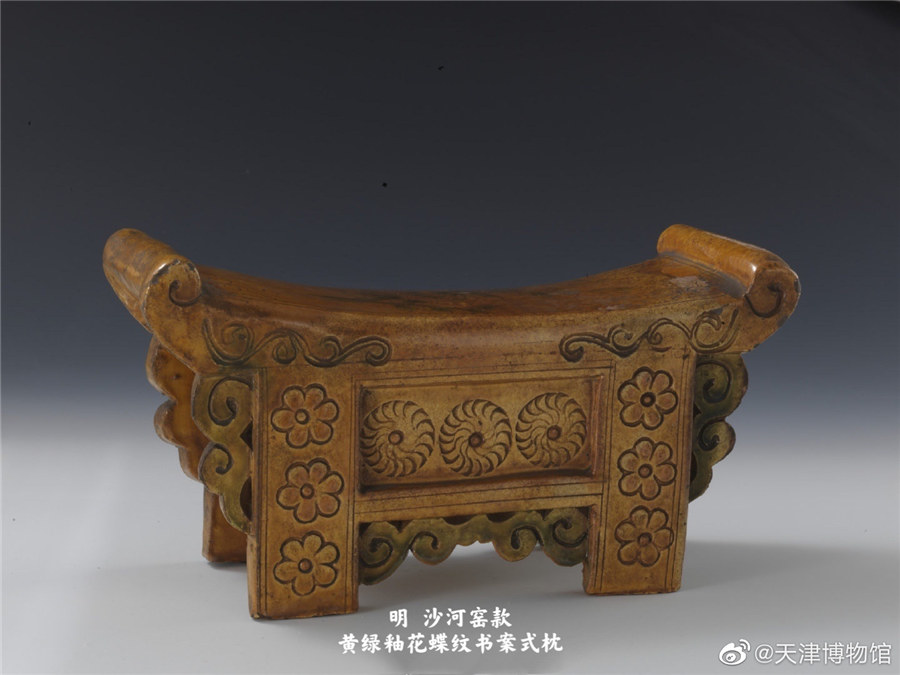Culture Insider: The evolution of pillows in ancient China


2. Stories about pillow
According to historical accounts, the renowned historian Sima Guang from the Northern Song Dynasty (960-1127) used a section of a round log as his pillow throughout his life. This unique pillow had a peculiar function: whenever Sima Guang moved slightly during his sleep, his head would slip off the pillow, causing him to wake up immediately and continue his studies. This particular type of pillow came to be known as an "alarm pillow".
The Chinese word for "pillow", zhentou, is believed to be coined by Cao Cao, a prominent strategist and ruler during the Three Kingdoms period (220-280). One night, while Cao Cao was reading in his military tent and becoming sleepy, there was no extra space available to place several books stored in wooden cases. In response, a servant improvised by placing the books at one side of the bed, upon which Cao Cao fell asleep quickly, experiencing a deep and restful slumber. Impressed by the comfort provided by this makeshift arrangement, the servant then created a padded headrest using soft materials, mimicking the shape of the wooden box that held the books. When Cao Cao inquired about the name of this new item, the servant referred to it as "headrest bedding". Cao Cao subsequently named it zhentou, and from that point on, the use of pillows became popular among the common people.


















